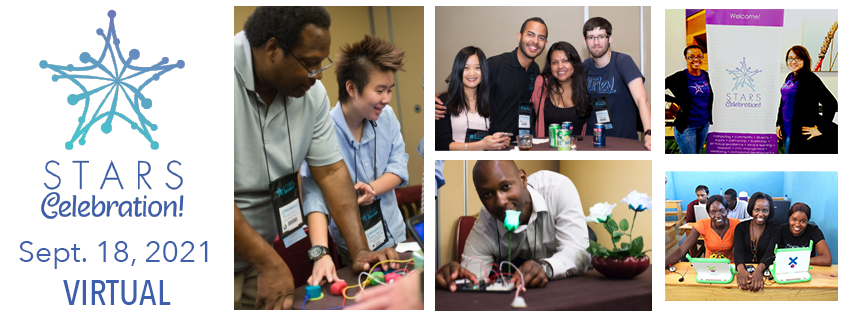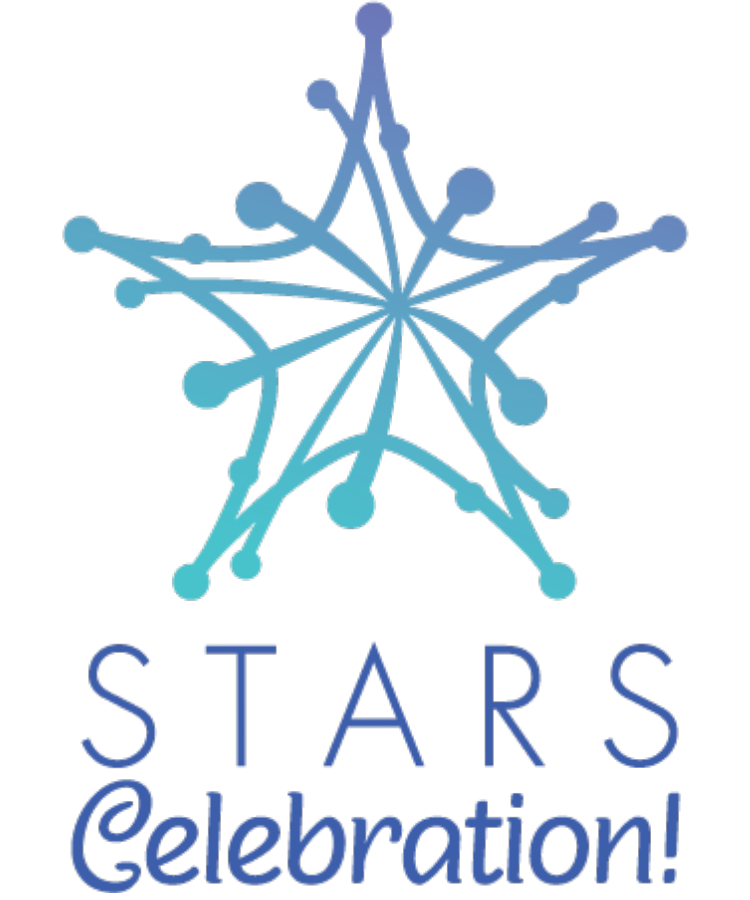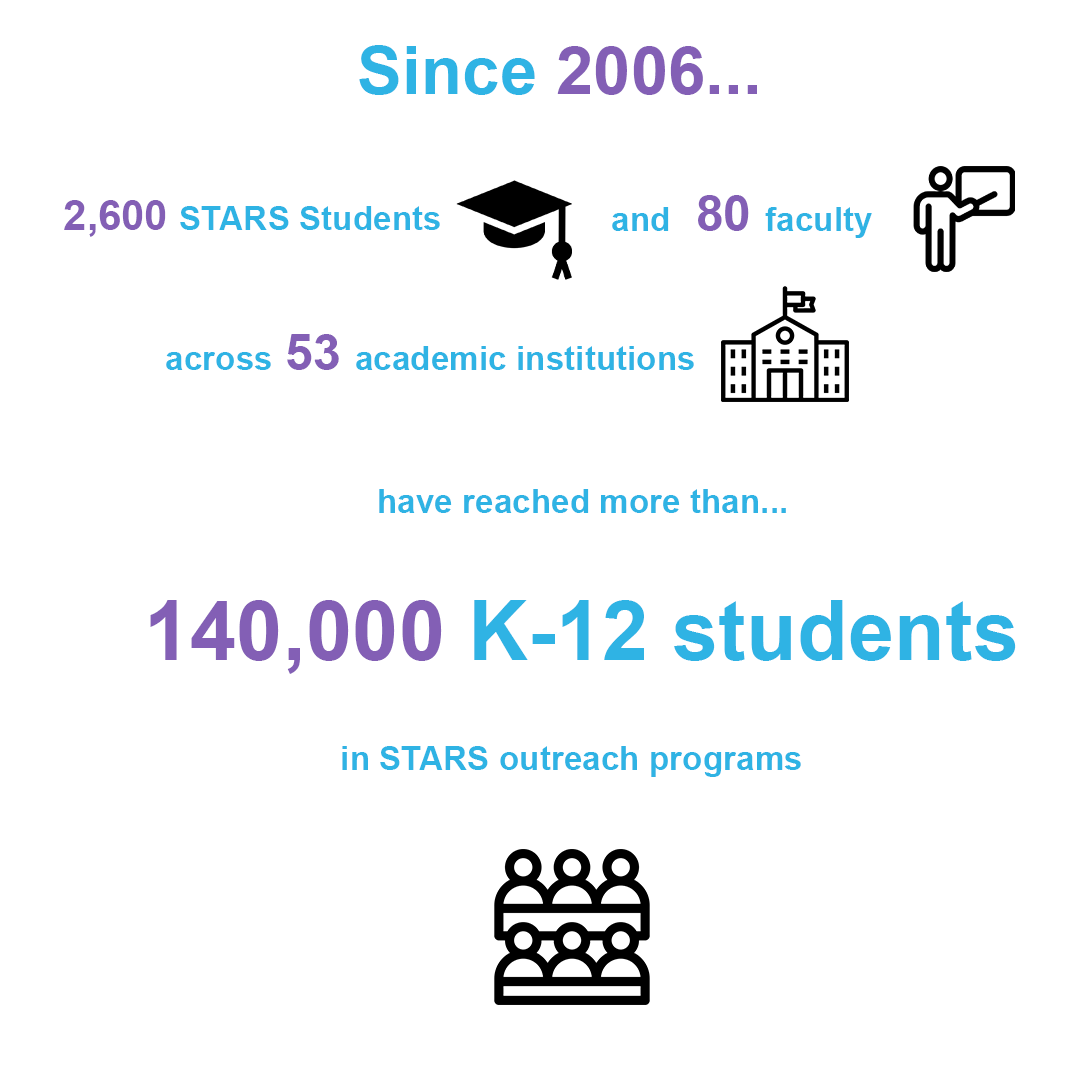
a leadership & professional development conference
for college students and faculty who are interested in
taking action to broaden participation in computing
Saturday, September 18th 2021
>> The Celebration
The STARS Celebration conference program features sessions on best practices in broadening participation in computing, hands-on training (virtual for 2021) workshops for conducting computer science outreach programs for K-12 students, and professional development sessions for both faculty and students. The STARS Celebration conference also serves to build and sustain the STARS Computing Corps (STARS) community.
>> What is STARS?
STARS is an NSF-funded alliance of more than 50 colleges and universities with a mission to develop college students and faculty as leaders who broaden participation women, underrepresented minorities, and persons with disabilities in computing. STARS student members take an active role in broadening participation in computing and develop their technical skills by leading service learning projects, including near-peer outreach that introduces K-12 students to computing as well as within-department peer tutoring, mentoring, and research collaborations.
>> Interested? The STARS Celebration welcomes existing members of the STARS Computing Corps, as well as newcomers! Anyone who is interested in in learning about how to take action and connect to national resources for broadening participation in computing are welcome.
>> Join us for STARS Celebration 2021!
Saturday, September 18th, 2021 – co-locted with the Richard Tapia Celebration of Diversity in Computing!
The STARS Celebration and Tapia Celebration will be hosted virtually on an online conference venue platform for 2021.
Registration is open!
Registration for STARS Celebration is free with a full Tapia conference registration – just select the option to attend the STARS Celebration event when completing your Tapia registration. Complimentary registrations to Tapia+STARS are available!
This material is based upon work supported by the National Science Foundation (NSF) under Grants CNS-2023391. Any opinions, findings, and conclusions or recommendations expressed in this material are those of the author(s) and do not necessarily reflect the views of the National Science Foundation.


